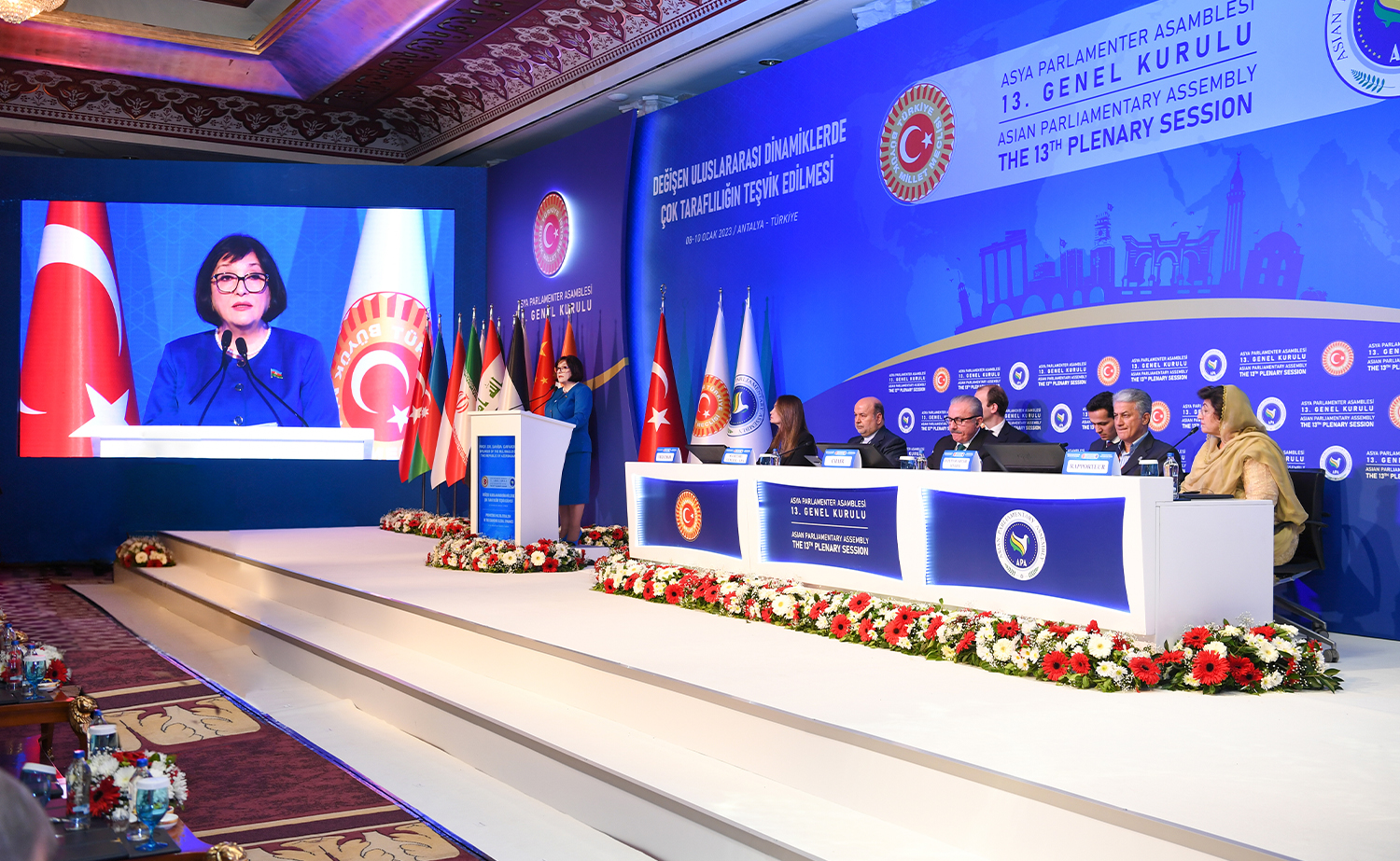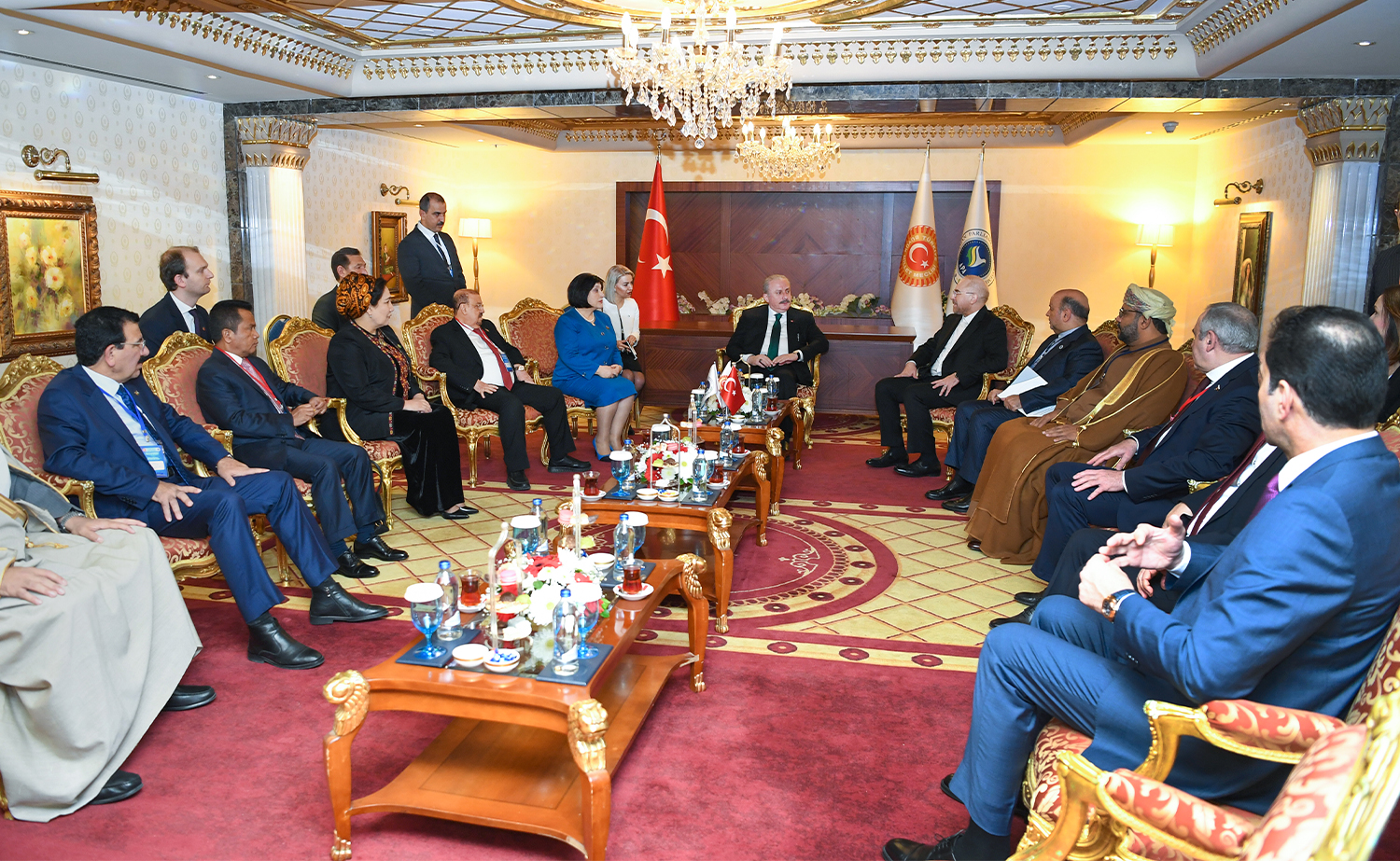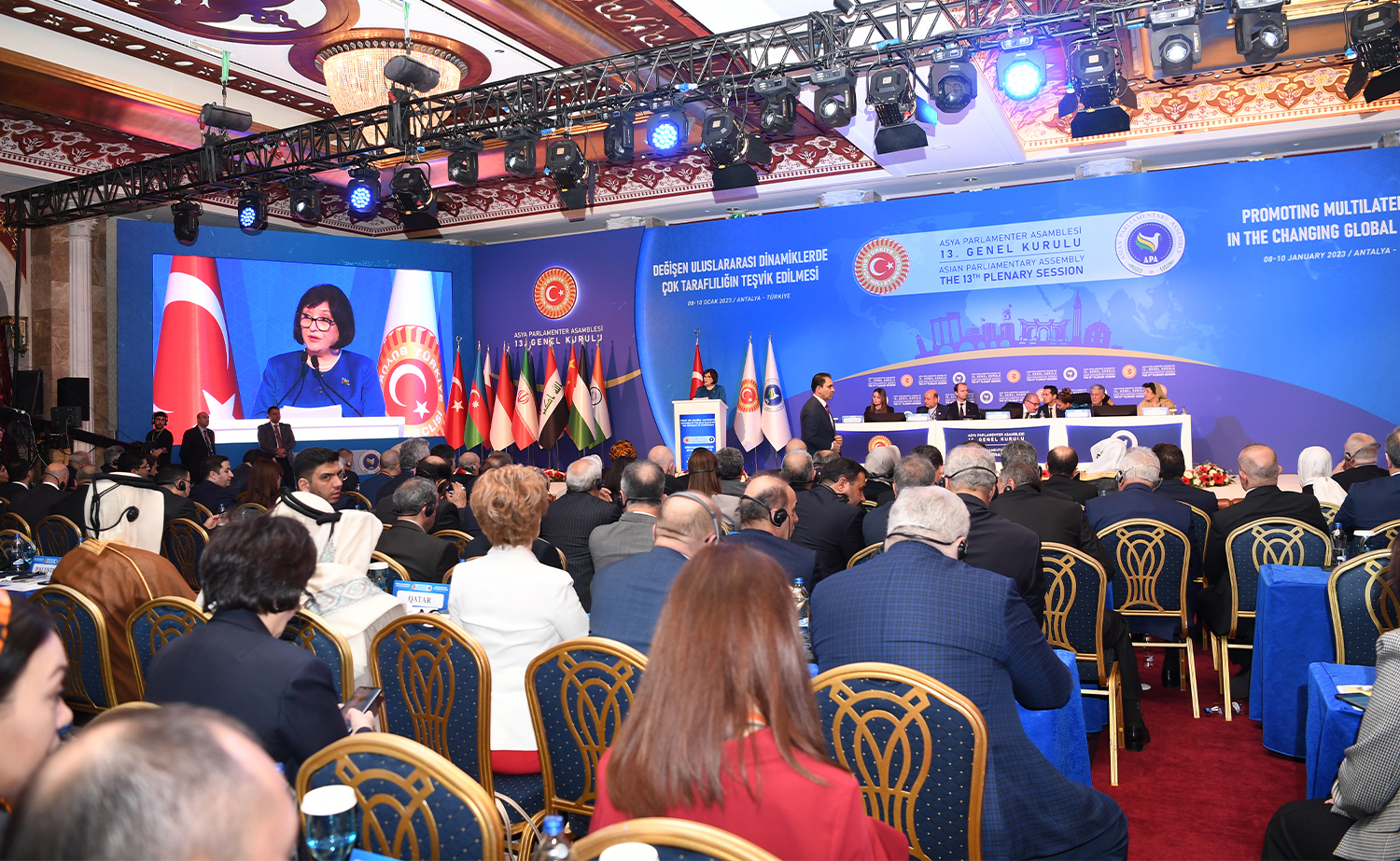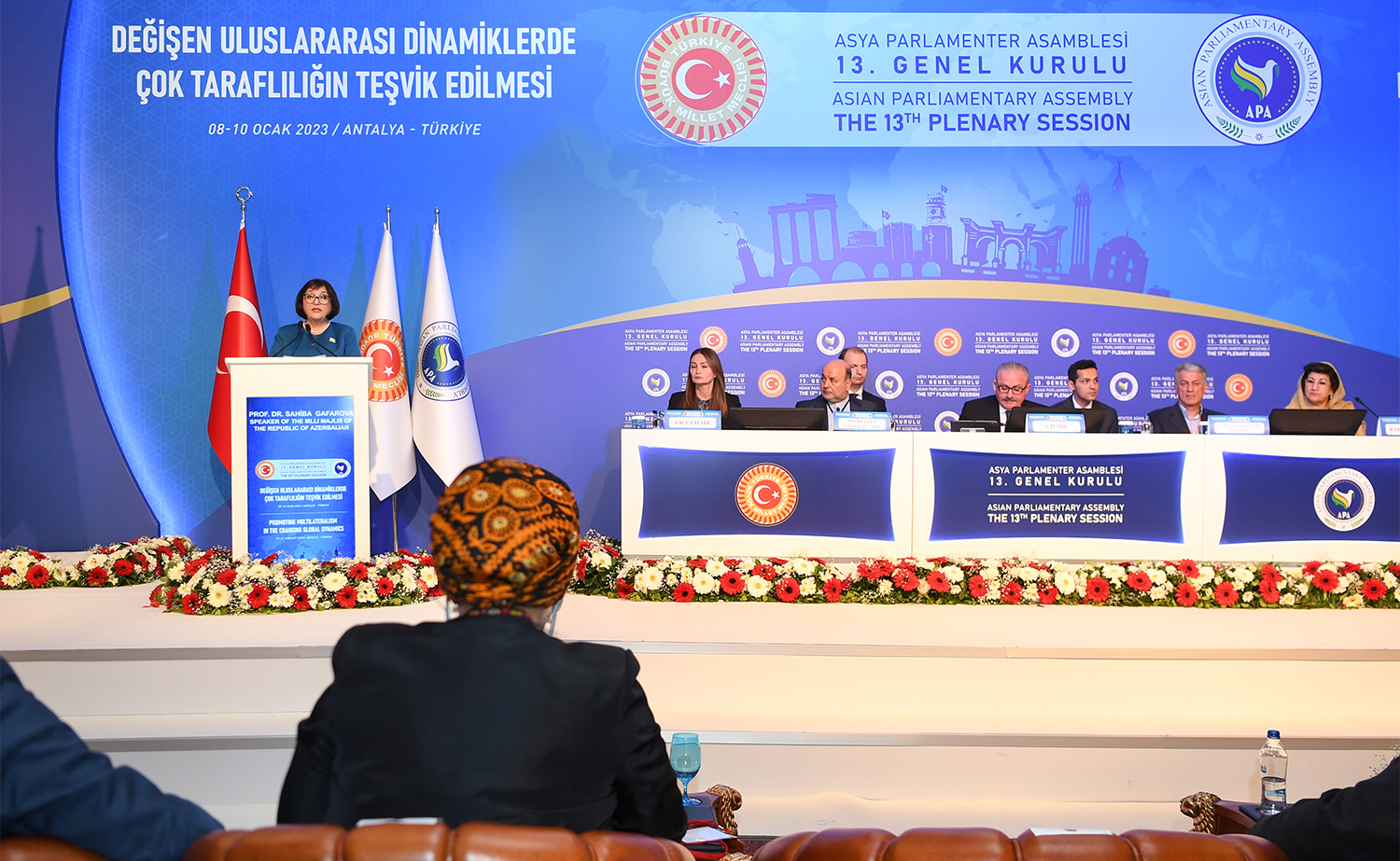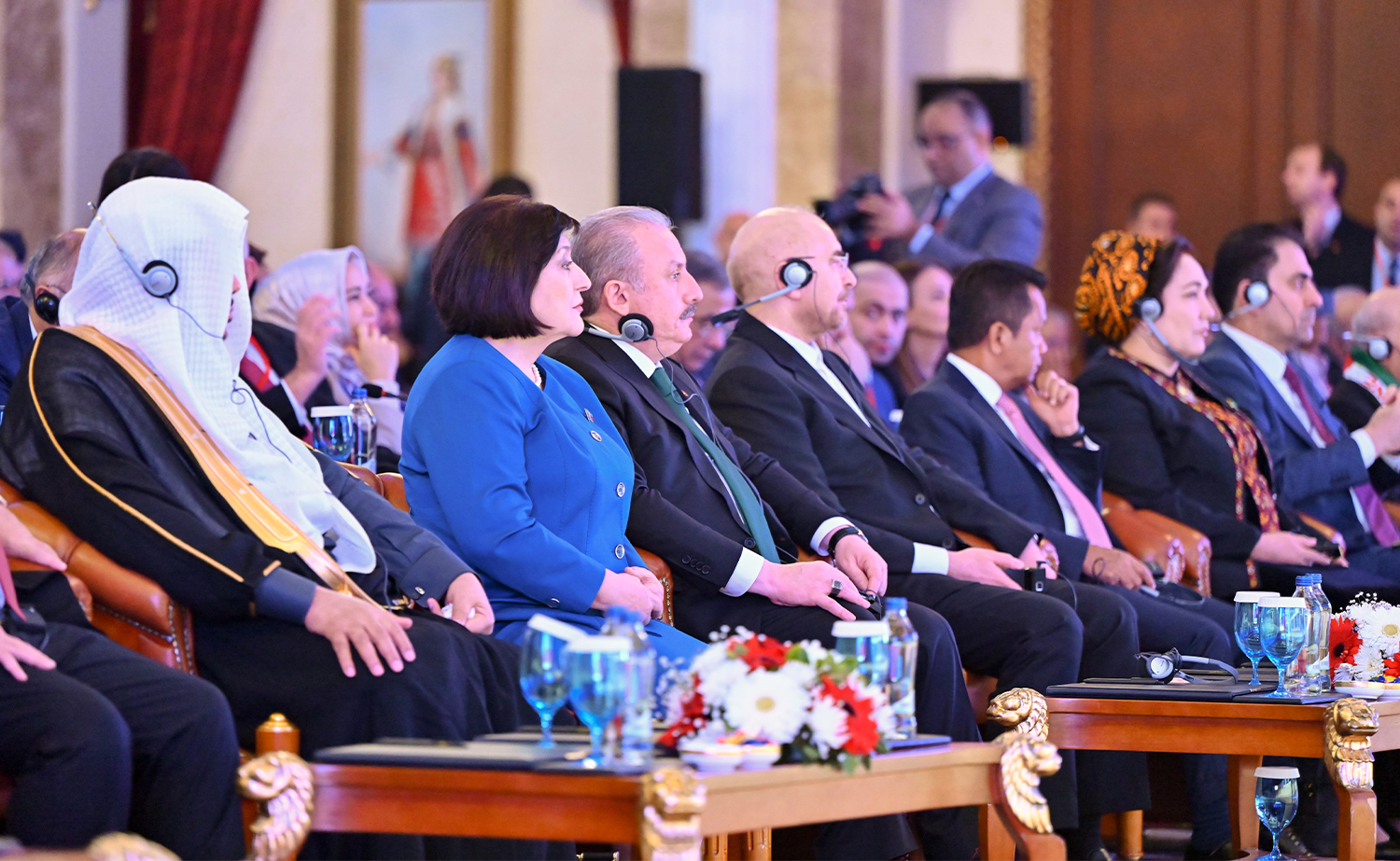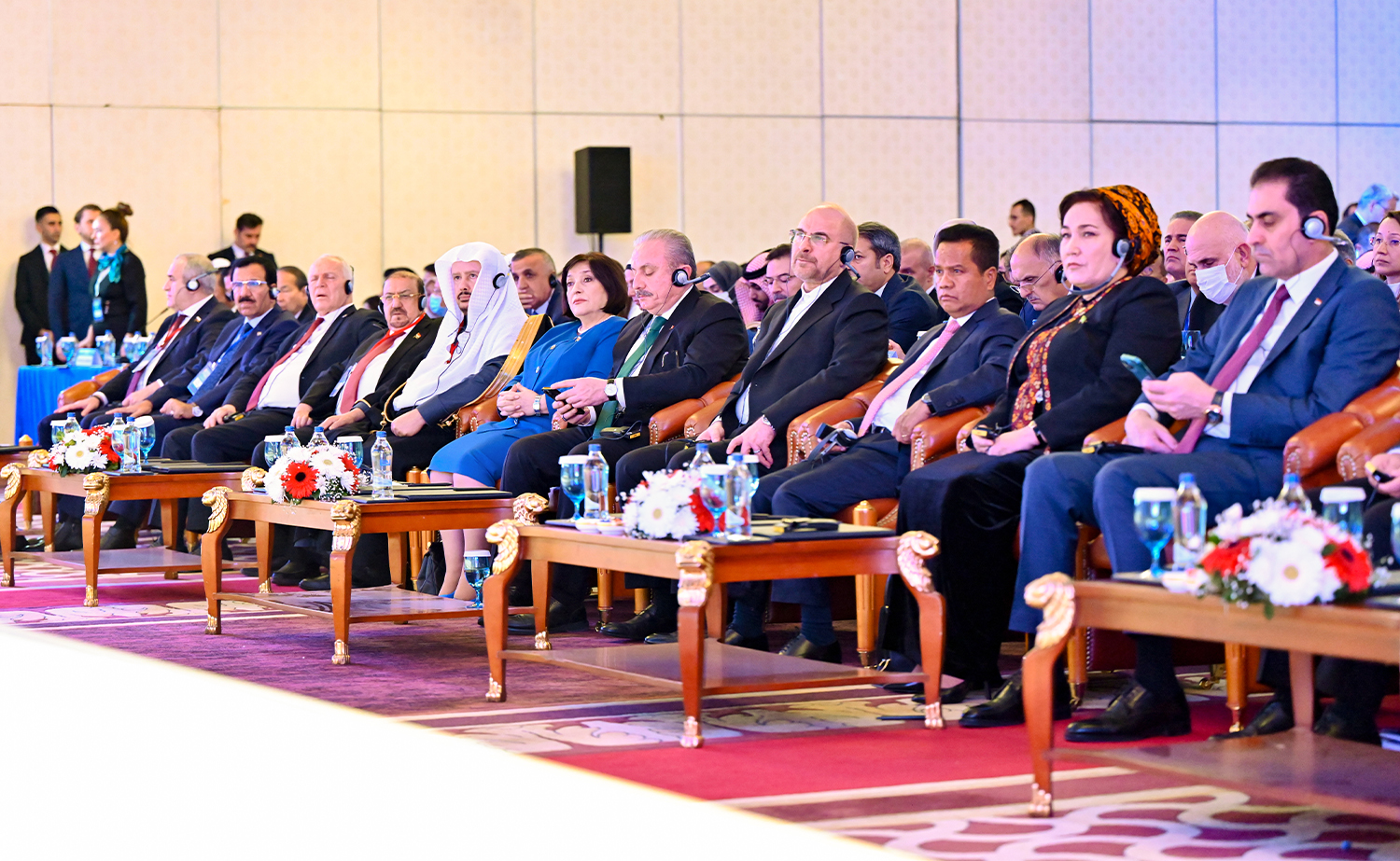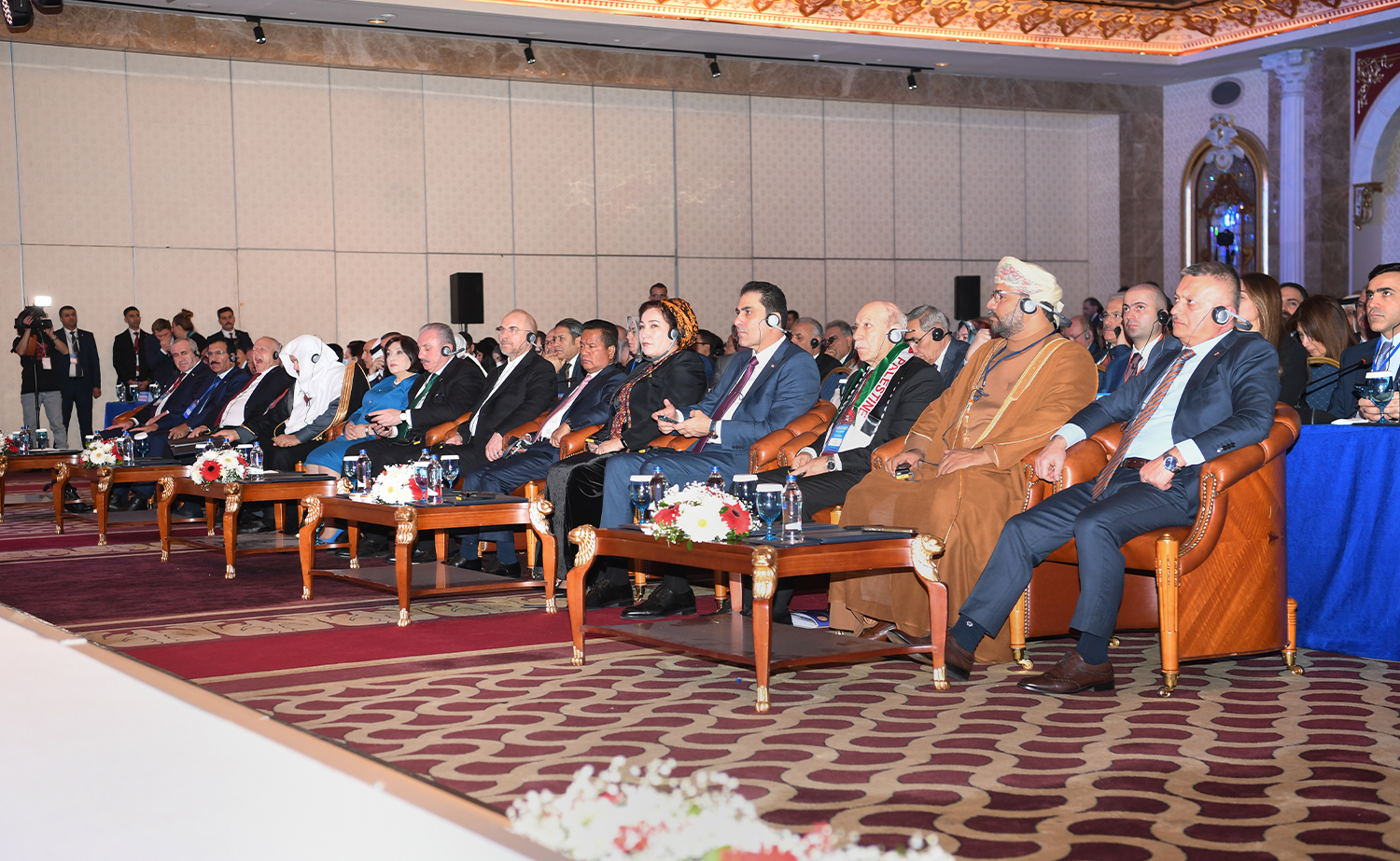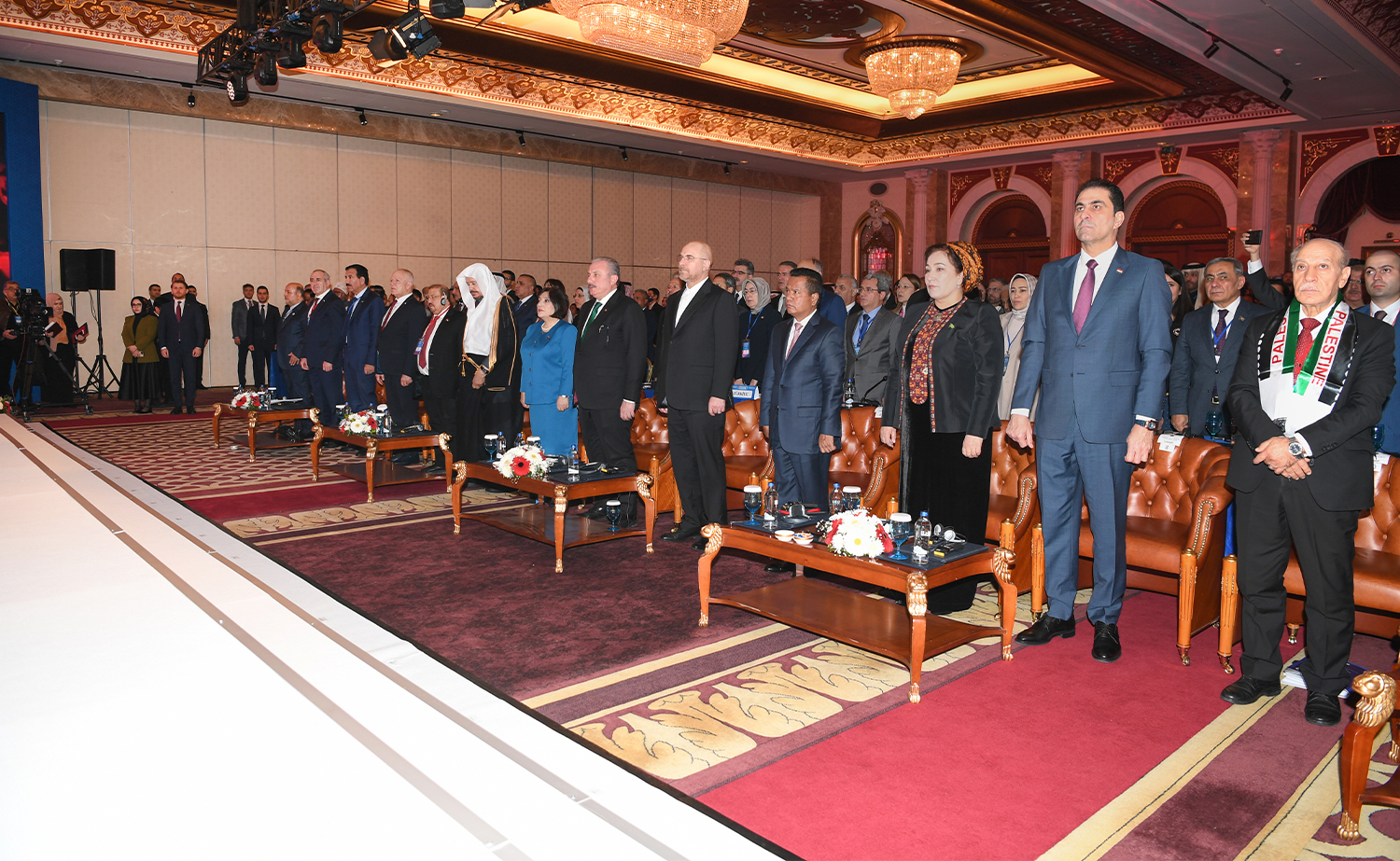Chair of Milli Majlis Sahiba Gafarova Addresses 13th Plenum of Asian Parliamentary Assembly
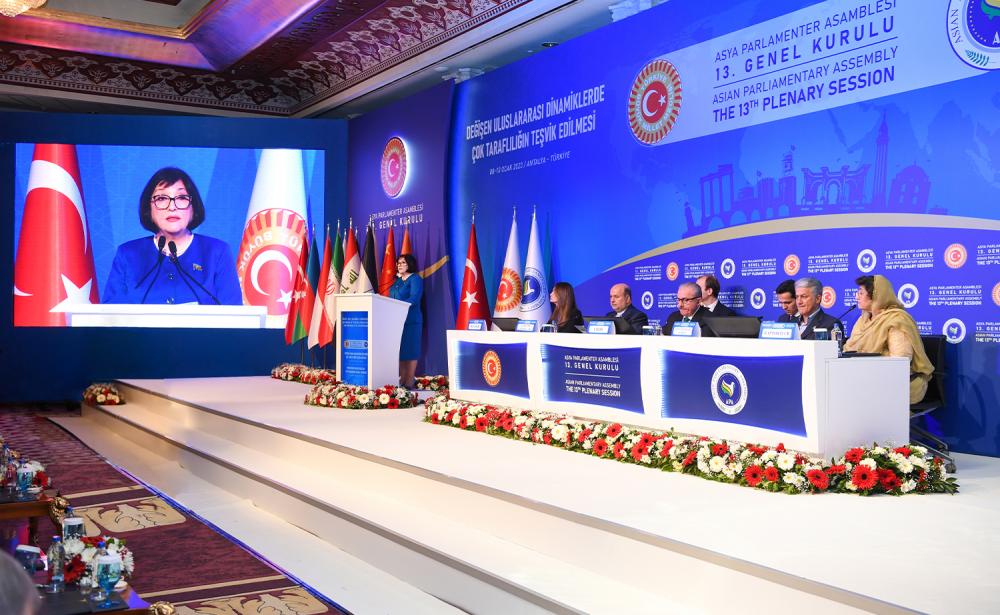
As reported earlier, Chair of the Milli Majlis of the Republic of Azerbaijan Sahiba Gafarova is now in the Republic of Türkiye on a working visit. During it, she has addressed the participants of the 13th plenary session Promoting Multilateralism in the Changing Global Dynamics of the Asian Parliamentary Assembly.
The Speaker of the Milli Majlis praised in her speech the past five years of governance of the APA by the Grand National Assembly of Türkiye as an unequivocal declaration of this fraternal state’s commitment to multilateralism, solidarity and inter-parliamentary co-operation.
The world as we know it now faces the need to resolve complex challenges. Such problems as poverty, humanitarian crises, inequality and climatic changes, those, that is, which affect all the aspects of people’s lives, had become yet more acute at the time of the COVID-19 pandemic, Mrs Gafarova was saying. She proceeded to comment on the approaches that the global community had taken up to address those problems, saying that such trends as vaccine nationalism and procurement of unfair economic advantage had demonstrated the inefficiency of the unilateral steps taken by certain major states.
The post-pandemic age, its conditions and harsh reality have made dialogue, solidarity and unity as importance as they perhaps have never been. The past experience is telling us there is no alternative to multilateralism and then, the latter requires dramatic improvements for the tasks on our hands now to be resolved, continued the leader of the Azerbaijani legislature. But we can only overcome those difficult problems if we combine our efforts and remain true to international co-operation, which is why parliamentary diplomacy is getting a chance at the present time to disclose its whole potential entirely whilst the international parliamentary platforms that have proved their significance over the past years have come to be important elements of multilateralism in that they have supported and are supporting the common efforts and the joint activities.
The leader of the Milli Majlis said then that the inter-parliamentary co-operation scenes proclaim the responsibility of parliamentarians as deputies of their respective peoples for seeking solutions to universal problems of the Humankind as well as for the work done together in the name of a better world.
Sahiba Gafarova underscored the dialoguing agora that the Asian Parliamentary Assembly had created for Asian parliamentarians and the resulting tightly-knit co-operation opportunities as Mrs Gafarova was speaking of the role of the APA pertaining to uniting efforts. She then let it be known as Chair of the Non-Aligned Movement’s Parliamentary Network incepted upon the instance of the president of the Republic of Azerbaijan Mr Ilham Aliyev that the Network shared the same vision and principles as the APA did, and was prepared for collaboration with the APA in order that common goals were achieved.
Sahiba Gafarova reiterated the need of the present-day multilateralism system in serious adjustments - such that would only benefit all the states - and went on to underline the imperative to adhere to the international law standards and principles strictly as well as that international organisations should absolutely avoid double standards. Such is the requirement of the modern system of international relations; this is equally essential for justice to reign and for sincerity to fill all relations, according to Mrs Gafarova.
She continued her speech by bringing up the thirty-year-long Armenian occupation of 20 per cent of what is the territory of our country recognised as such internationally. Throughout those years of captivity, Armenia coventrated all our towns and villages and vandalised Azerbaijan’s whole historical and cultural heritages as well as temples. Armenia had been set on a course for ethnic cleansing of those territories. Almost 4,000 Azerbaijani citizens, military personnel and civilians alike, have been reported missing ever since the times of Garabagh War I. Speaking of the ethnic cleansing, it made more than 1 million Azerbaijanis internally displaced persons as they were evicted from the formerly occupied lands and refugees as they were forced to flee from the territory of Armenia.
The Speaker of the Milli Majlis referred to several historical facts in this regard. For instance, she stressed that the Azerbaijanis formerly resident in Armenia had been driven from their homes even before the outbreak of the conflict. Besides, Sahiba Gafarova told her audience that historical maps and documents confirm the establishment of Armenia in the as historical Azerbaijani lands, and that Azerbaijanis had lived in those lands for centuries on end. Our own town, historically, too, Irevan was declared Armenian capital in 1918, and in 1920 the Soviets annexed Azerbaijan’s Zangazur and attached it to Armenia. That last move cut Azerbaijan off geographically from her own region of Nakhchivan as well as from Türkiye .
The Azerbaijani populace of those lands were subjected to several waves of deportation throughout the 20th century with the latest of those having occurred before our eyes during 1988-1991. Just like that which was wreaked in Garabagh, in Western Azerbaijan, too, our nation’s historical and cultural heritages were decimated and the towns and villages that had been Azerbaijani by nature and origin were renamed - all to erase all the traces of our legacy over there.
In continuation of the subject of Armenian occupation of Azerbaijani lands, Madam Chair reminded the listeners that Azerbaijan had endeavoured to settle the conflict peacefully all those years. Still, the four 1993 resolutions of the UN Security Council demanding immediately, complete and unconditional withdrawal of Armenian armed forces and the decisions and statements of other international organisations to the same effect had not been acted upon. And then, we do know, do we not, that resolutions of the UN Security Council are carried out within days and even hours sometimes. Whereas they remained on paper for the good 27 years when Azerbaijan was in their focus. Mrs Gafarova deplored then the absence of whatever sanctions on international entities’ part against the aggressor state as well.
Azerbaijan used her right of self-defence as stipulated in Article 51 of the UN Charter to enforce those resolutions of the UN Security Council as well as the norms and principles of the international law at the cost of almost three thousand shahids’ lives. This is how the territorial wholeness of Azerbaijan and historical justice were restored in the end. Azerbaijan then followed up the end of Garabagh War II in November 2020 with large-scale resurrection of her liberated lands in the format of the Grand Return programme. The return of our erstwhile IDP to their native parts has begun. Sahiba Gafarova declared her firm belief that the rights of the Western Azerbaijanis would be restored and that those people would travel back to their native lands.
Though a subject of aggression, Azerbaijan is trying for lasting peace and stability in the region and has already offered Armenia to sign a peace treaty based on five international law principles with a view to normalising the bilateral relations. Conversely, Armenia is busy violating blatantly the provisions of the Trilateral Declaration of 10 November 2020 that dropped the curtain on the former conflict. The Armenian armed forces have not been withdrawn from the Azerbaijani territories still; the Lachin Corridor is being used - or, rather, abused - to military ends: importing mines to be planted on illegally and exporting the pillaged natural wealth of our country. Armenia had planted more than 1 million mines in those areas during the occupation years; the mining continues today. As many as close to 280 Azerbaijanis have either been killed or maimed in the explosions of those mines since the conclusion of Garabagh War II. Armenia is being subversive at the conversations and, on top of that, Armenia hinders opening of communications and transport routes in defiance of the obligations it assumed, according to Sahiba Gafarova. Meanwhile, she added, the opening of the Zangazur Corridor which is set to become a new route in the Middle Corridor connecting Asia and Europe would greatly broaden transport co-operation and trade - within the region as well as beyond.
The Press and Public Relations Department
The Milli Majlis



